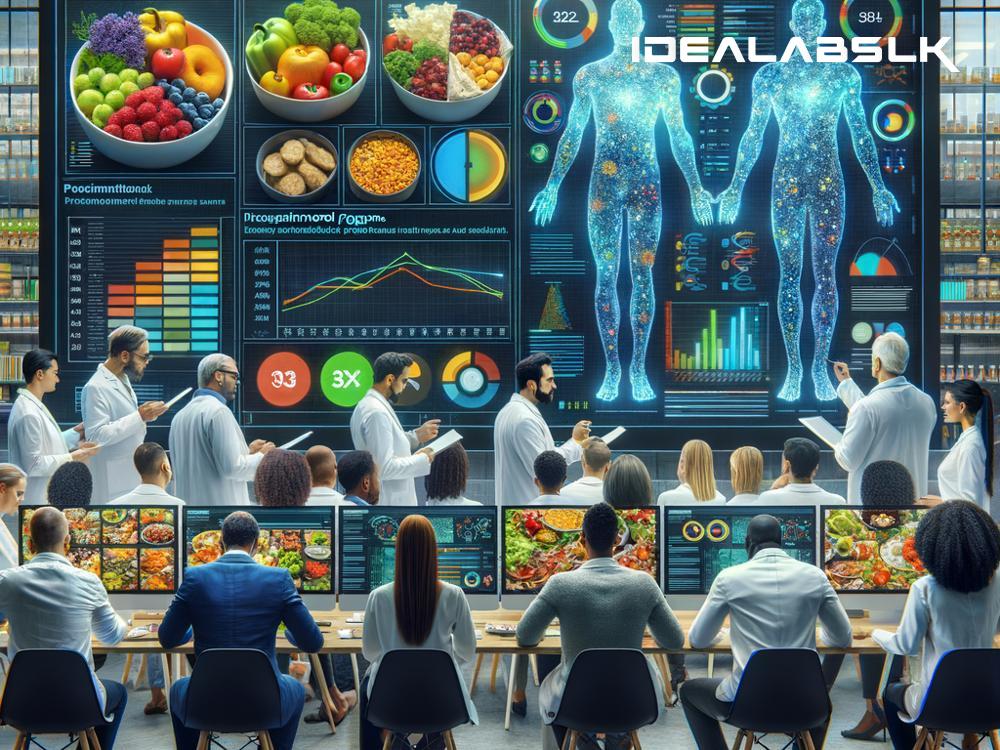Title: Revolutionizing Nutrition: How AI Is Creating Custom Foods for Health Needs
In today's world, where each person's health and nutritional needs are as unique as their fingerprints, the one-size-fits-all approach to diet just doesn't cut it anymore. This is especially true for those managing specific medical conditions or dietary restrictions. Enter Artificial Intelligence (AI) - a game changer in crafting foods tailored to individual medical requirements. Let's dive into how AI is revolutionizing the way we think about food and health.
Understanding AI in the Kitchen
First off, what do we mean by AI? Imagine a super smart computer system that can learn, make decisions, and solve problems almost like a human brain but much faster. This technology is now stepping into the culinary world, not to cook (at least, not just yet), but to design foods that could one day significantly improve people's health.
Personalization at Its Best
Imagine you have diabetes, a condition that requires careful management of blood sugar levels. Traditionally, you might receive a standard list of food recommendations and restrictions. With AI, it's like having a personal nutritionist that knows every detail about how your body responds to different foods. The AI can analyze data from your medical records, dietary preferences, and even your DNA to suggest or even create recipes that not only keep your blood sugar in check but also taste good and satisfy your cravings. This level of personalization is a game-changer for individuals with specific health goals or medical needs.
The AI Recipe Developer
How does AI actually develop these custom foods? By digesting vast amounts of nutritional data, food composition, and scientific studies on how certain ingredients interact with different health conditions. For example, if the AI knows that omega-3 fatty acids can benefit someone with heart disease, it might suggest recipes rich in this ingredient.
But AI doesn't stop there. It can also factor in the user's taste preferences, cultural dietary restrictions, and even environmental sustainability concerns. The end result is a recipe or food product that hits all the right marks - healthful, enjoyable, and responsible.
The Role of Food Tech Startups
A number of forward-thinking startups are harnessing AI to bring these personalized food solutions to market. From apps that design personalized meal plans to companies creating nutrient-packed snacks tailored to your health data, the possibilities are endless. These innovators are at the forefront of a movement that envisions a future where food plays a central role in disease prevention and management, all thanks to the power of AI.
Challenges and Considerations
As with any technology, there are hurdles to overcome. Privacy and data security are paramount, as AI systems need access to sensitive health information to function effectively. There's also the challenge of making sure these personalized food solutions are affordable and accessible to those who need them most. After all, the benefits of AI in nutrition should be available to everyone, not just those who can afford the latest tech.
Looking Ahead
We're just scratching the surface of what's possible when we combine AI with nutrition and healthcare. Researchers are exploring how AI could help develop foods that not only meet individual health needs but also contribute to overall longevity and wellness. Imagine a world where your diet is perfectly aligned with your genetic predispositions, lifestyle, and health goals, all thanks to AI.
In Conclusion
AI's role in developing foods tailored to medical needs represents a significant leap forward in personalized nutrition. It offers hope for more effective management of chronic diseases, as well as a more nuanced understanding of the relationship between diet and health. As this technology continues to evolve, we may soon find ourselves in an era where the foods we eat are as personalized as the advice we receive from our doctors, all designed to keep us healthy, happy, and thriving.
In the end, the goal is clear: to transform the way we think about food, from mere sustenance to a powerful tool for health and wellness. With AI leading the charge, we're on the cusp of a nutritional revolution that promises to make the food on our plates as smart as the phones in our hands. Welcome to the future of eating.

